

Also referred to as introduced, unwanted, and non-native species, invasive species are the alien species that invade habitats and displace other species through rapid growth and spread.
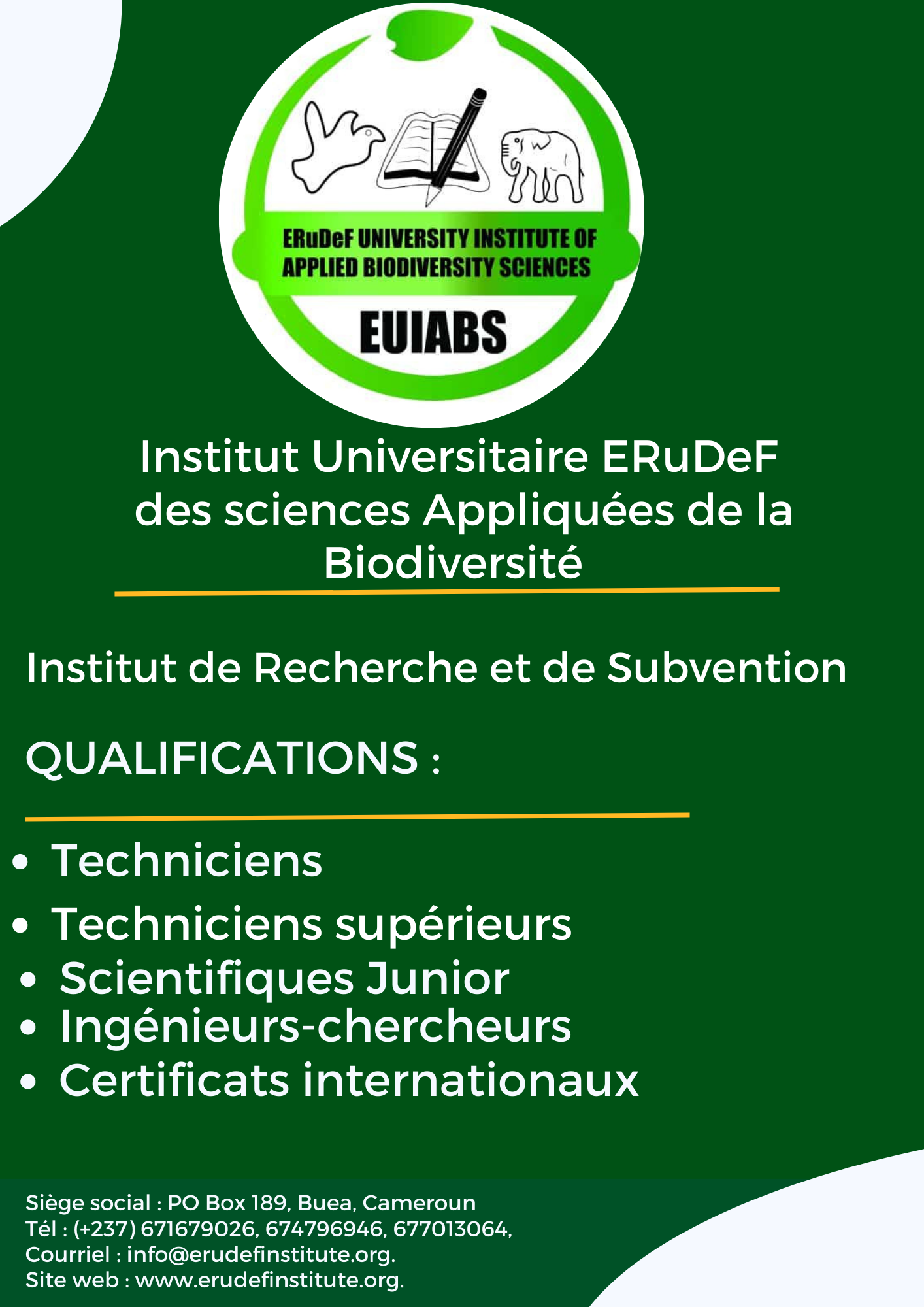
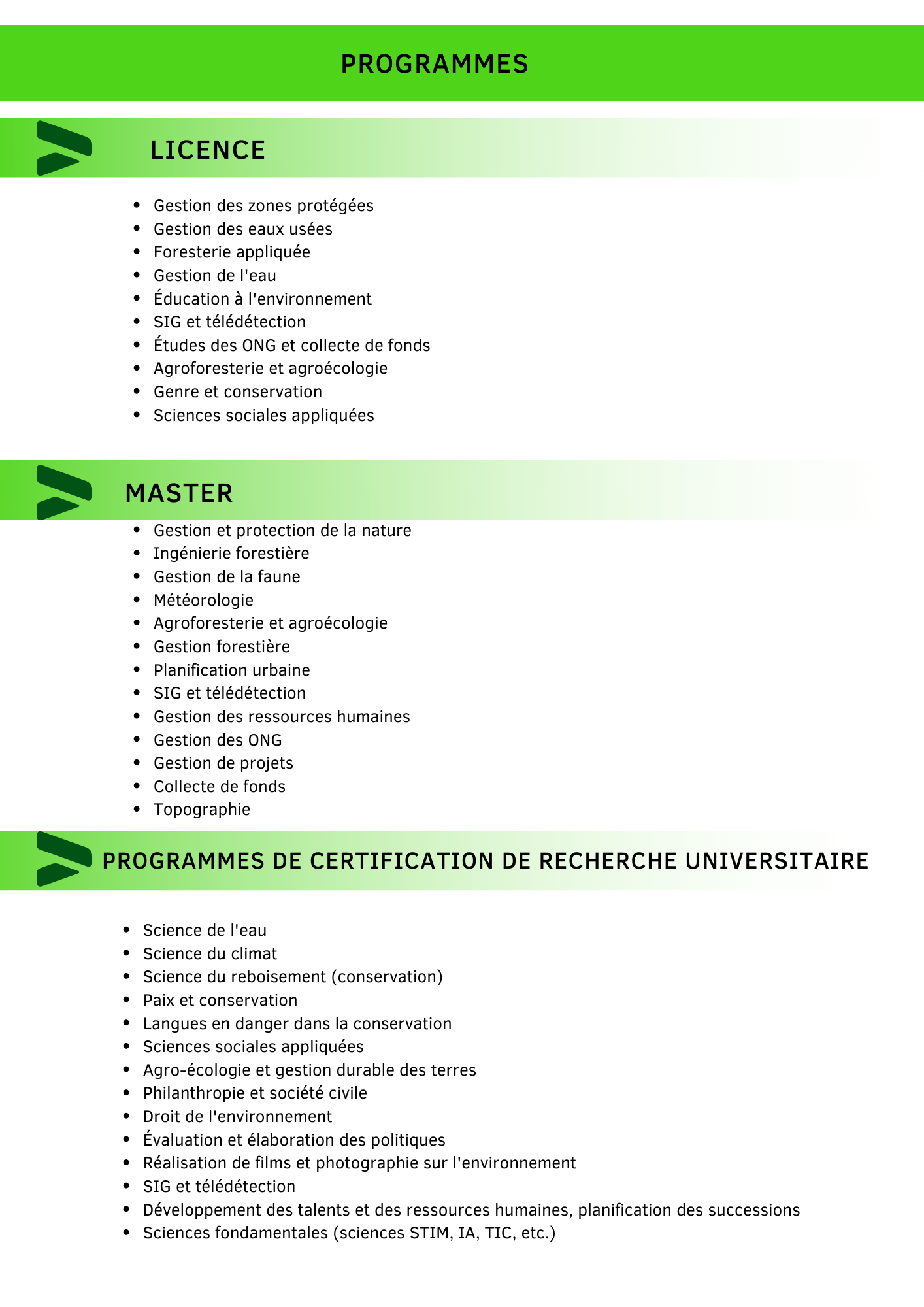
1-CONDITIONS OF ELIGIBILITY:
Admission is based on the study of file for Cameroonians and foreigners of both sexes who fulfill the following conditions:
1.1. NATIONAL CANDIDATES:
1.1.1 Technician Level:
Be a holder of GCE A/L in at least 2 subjects or an equivalent certificate. It is a 24-month programme with the last 12 months focused on industrial apprenticeship.
Non-qualified candidates will go through our foundation courses.
1.1.2 Senior Technician Level:
Be a holder of GCE A/L in at least two subjects, the “BACC or Brevet des Technicians/HND” in Wood Industry or Logging (1B, EF) or an equivalent certificate. It is a three years programme with the last 12 months focused on industrial apprenticeship. Holders of associate degrees in related fields spend two years as well as candidates with a degree in a non-related field. A degree in a related field spend one year.
Non-qualified candidates will go through our foundation courses
1.1.3 Postgraduate Certification Progrmmes:
In order to be admitted into the Postgraduate Certification programme, candidates fulfilling any of the conditions listed below shall be eligible;
1.2 Application Deadlines
1.2.1 National Candidates
Research and Grants-based Institute
Applications should be received on or before 30 September every academic year.
1.2.2 International Candidates
Foreign candidates who fulfill the above conditions (qualifications) should submit their applications on or before 31 August each year.
2.1 Undergraduate Programmes
admissions office at NGO Street Molyko, Central Market Road.) or admission agent.
(PgRS) aid through the bank account below.
2.2 Postgraduate Certification Programme
All of the above plus
3.0 Fees in CFA
The annual tuition stands vary for the three schools as follows
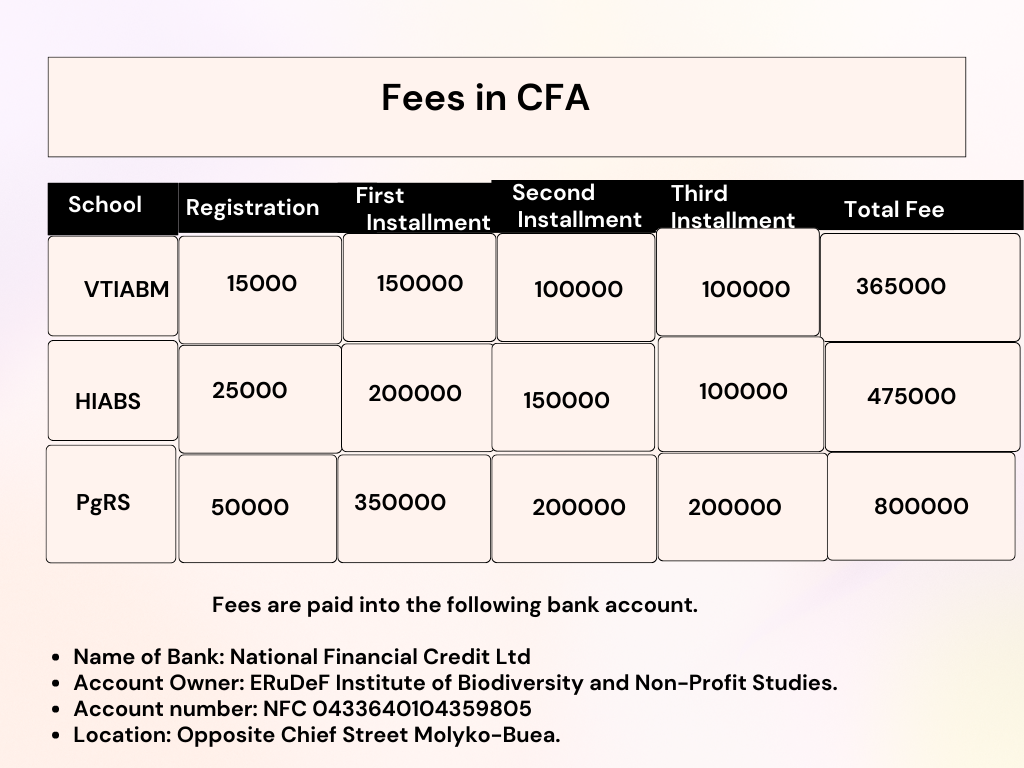
Candidates who are retained shall be expected to pay the respective sum above based on selected programme of the individual. The first installment shall be paid before the commencement of the programme.
Fees are paid into the following bank account.
Name of Bank: National Financial Credit Ltd
Account Owner: ERuDeF Institute of Biodiversity and Non-Profit Studies.
Account number: NFC 0433640104359805
Location: Opposite Chief Street Molyko-Buea.
Founder /President Louis Nkembi
Pro-Chancellor, Prof. Tankou Christopher
Chair, Senate: Prof. Lum Fontem
Chair, Scientific Committee: Dr.Nkengafac Gertrude
Rector: Dr. Augustine Nyangue
Director, Administration & HR: Shey Aloysius
Head Office: PO Box 189, Buea, Cameroon
Tel (+237) 671679026, 674796946, 677013064,
Email: info@erudefinstitute.org,
Website: www.erudefinstitute.org.
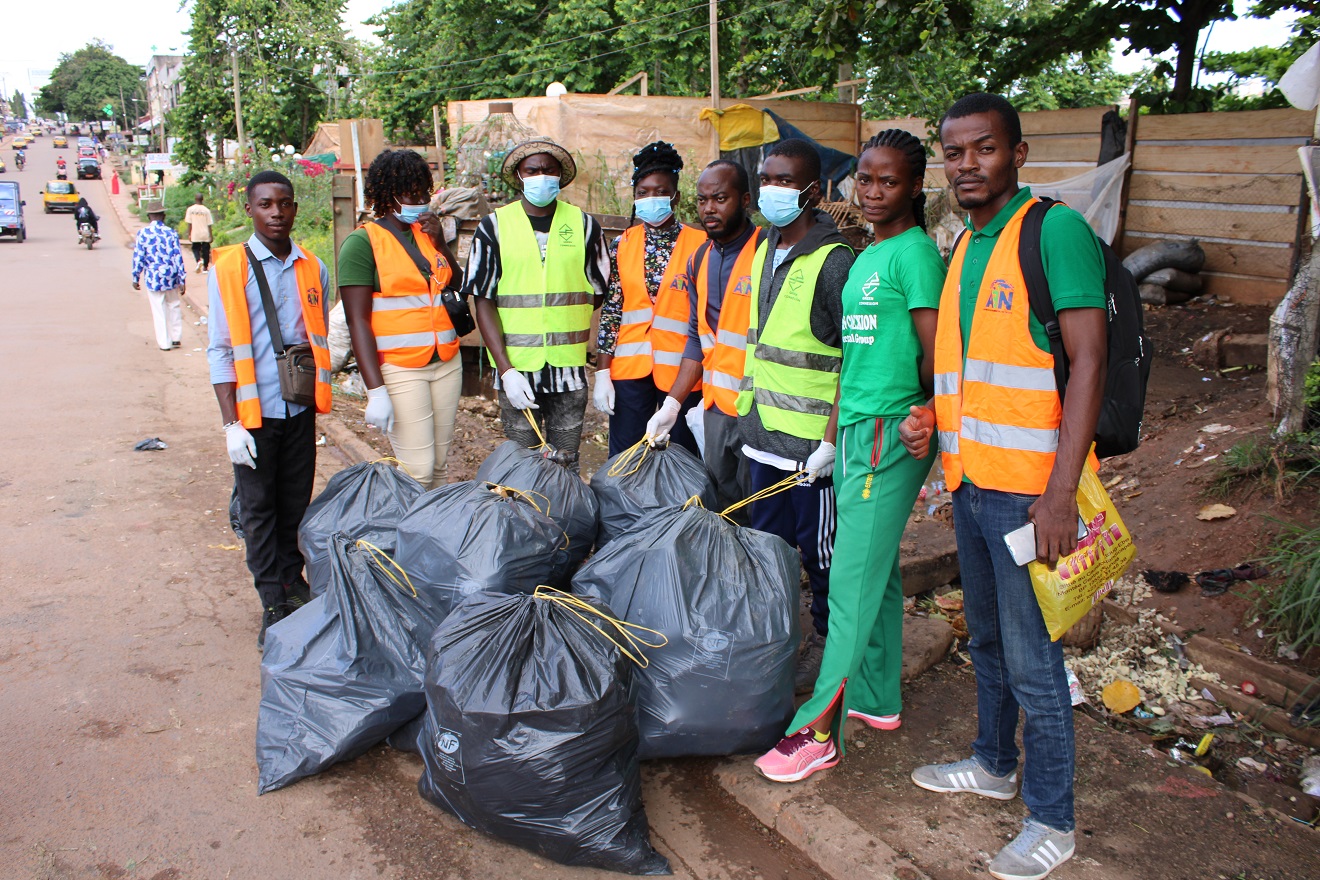
The campaign took place in the commune of Yaounde 6. The first collection area was Chapelle Obili, the second Carrefour Kameni, the third Ecole de Source, the fourth Lycée de Biyem-assi and finally the Accacia district.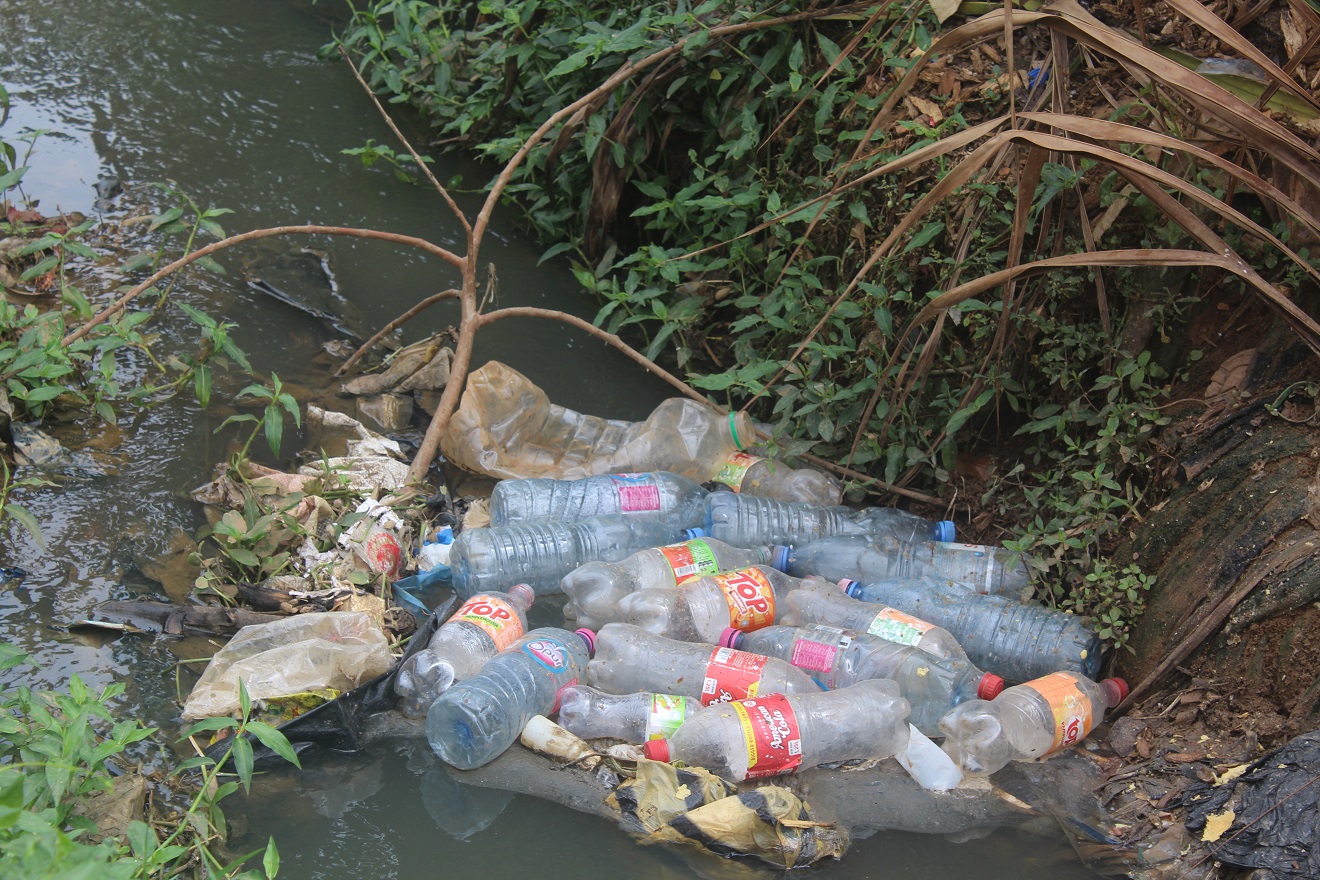

At the end of the collection, the waste collected was handed over to Name Recycling for processing.

Green Connexion and the environmental impact of urban disorder
World Environment Day, which is celebrated every 05 June, has as its theme this year: “Solutions to plastic pollution”, and is directly in line with the current concerns of Green Connexion, whose aim is to study the environmental impact of urban disorder in Cameroon.
Cameroon’s political capital, like other cities around the world, is experiencing strong population growth, resulting in anarchic construction that stands out for its insalubrity.
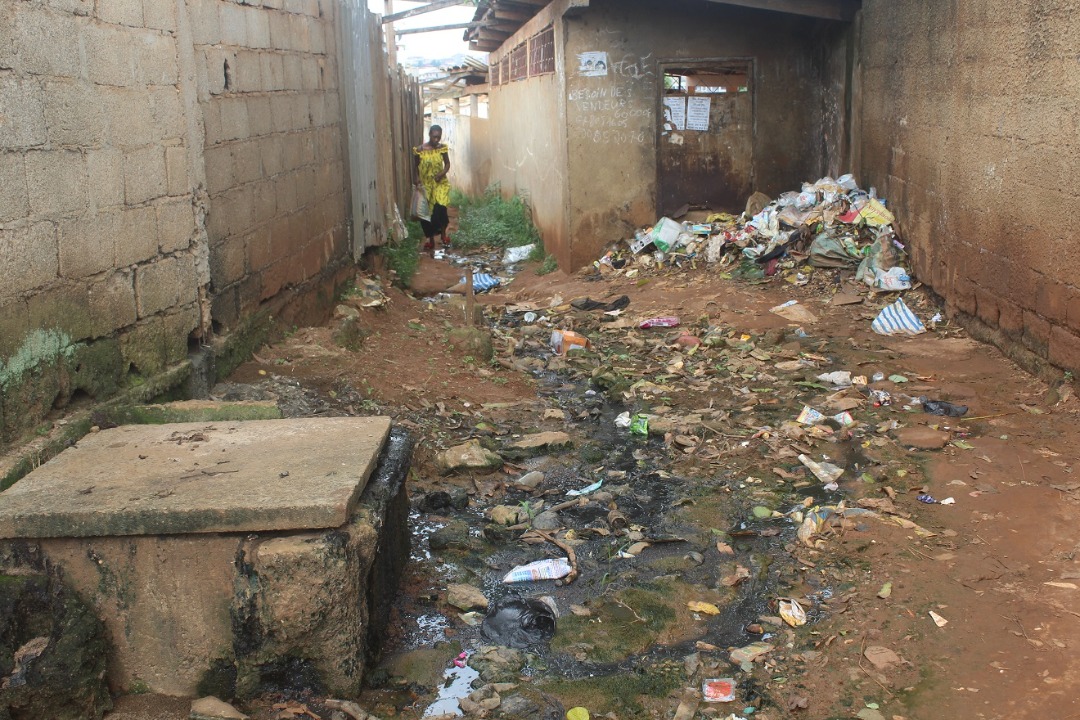
Household waste dumped near a faulty septic tank
This urban disorder is reflected not only in the deterioration of transport infrastructure, but also in the uncontrolled dumping of plastic waste and various effluents.
The large-scale contribution of urban disorder to climate change is a detail that is often unknown or overlooked by political and economic decision-makers. Indeed, “CO2 emissions vary according to the state of the road and the state of our environment”. These two aspects may seem trivial, but in a context such as that of the city of Yaoundé, the capital of Cameroon, for example, where sanitation services are not regular and road infrastructure is mostly in poor condition, the increase in GHG emissions is necessarily tenfold.
So we need to do something about it. It starts with each and every one of us:
I’m responsible for the waste I produce, so I recycle it. This would also contribute to the development of the green economy.
The theme for 2023, “Solutions to plastic pollution”, is one that Green Connexion fully supports and on which we are actively working.

Green Connexion is heavily involved in the process of rebuilding biodiversity through the effort to change the status of threatened species. This involves a gradual and long-term process of multiplying sub-populations and increasing their size.
This is the case for threatened species such as:
Eremospatha barendii (CR) ; Cola hypochrysea (EN) ; Trichoscypha hallei (EN) and Hypolytrum unispicatum (EN).
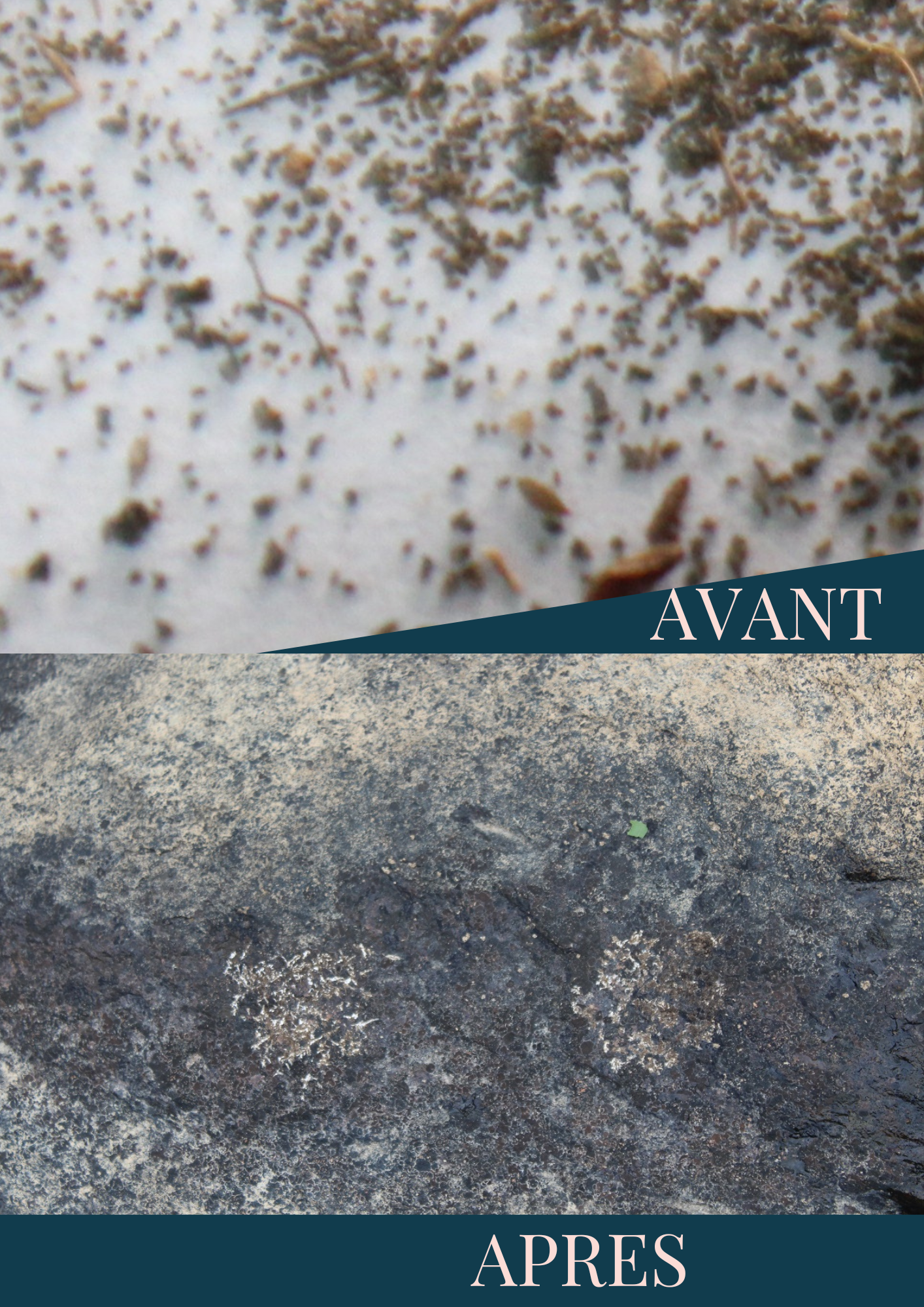
On the 28th of March 2023, a meeting of the members of the IUCN Cameroon National Committee was held at the headquarters of the IUCN National Office – Cameroon. Green Connexion was represented at this meeting. The objective of the said meeting was to review the activities of the Cameroon committee so far and to define the main orientations of future actions to be carried out for the good functioning of this committee.
As planned in the agenda, the meeting started with a word from the IUCN Director for Central Africa, Mr Kennet ANGU ANGU, who welcomed the participants and urged the members to continue the noble cause of protecting our dear Biodiversity; he also invited the members to work more in synergy for more efficiency. Before retiring, he wished that the activities would be carried out in good conditions and that everyone would return home smoothly.
After this welcome, the President of the National Committee of IUCN members, Prof. Roger Ngoufo, made a speech which was essentially based on the need and importance of this meeting. He ended his speech by inviting each representative to introduce himself and his organisation as well as its main activities.
After the presentation phase, the regional facilitator, Ms Eva MOUZONG, took the floor to briefly present IUCN at the global, regional and national levels. Overall, we can note that :
After this session, the president took the floor to inform the participants about the history and the state of affairs of the Cameroon Committee:
Proposal of the new bureau:
Communication officer and in charge of relations with specialised commissions: Green Connexion
Other perspectives
After this phase, the word was given to the administrations who made the recommendation that IUCN should seek to meet with the different Ministers to present their action plans in order to obtain the requested support.
The exchanges were closed at around 2pm with a family photo.
Green Connexion participated in a workshop organised on Friday, March 17, 2023, by a consortium of several partner organisations namely CCCWG, PACJA, ACSEA, GERMANWATCH, IKI, Sida, Federal Ministry for the Environment Nature Conservation, Nixlear Safety and Consumer protection.
The workshop was on “Training of Researchers for the Assessment of Renewable Energy Governance in Cameroon” and aimed at substantiating, profiling and contextualising renewable energy in Cameroon; creating a common understanding of the concept of governance and renewable energy governance; and defining and internalising the pillars and indicators of governance.
At the end of the training, each of these objectives was sufficiently discussed, exercises were given and a platform created for further exchange.
The training was chaired by Mr. Christian Oyono at the ACSEA (Assessment Of Renewable Energy Gouvernance In Cameroon) headquarters more precisely at Rond-point Damas behind the Frazati school.